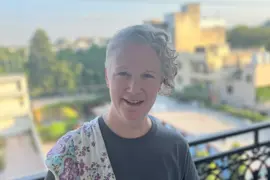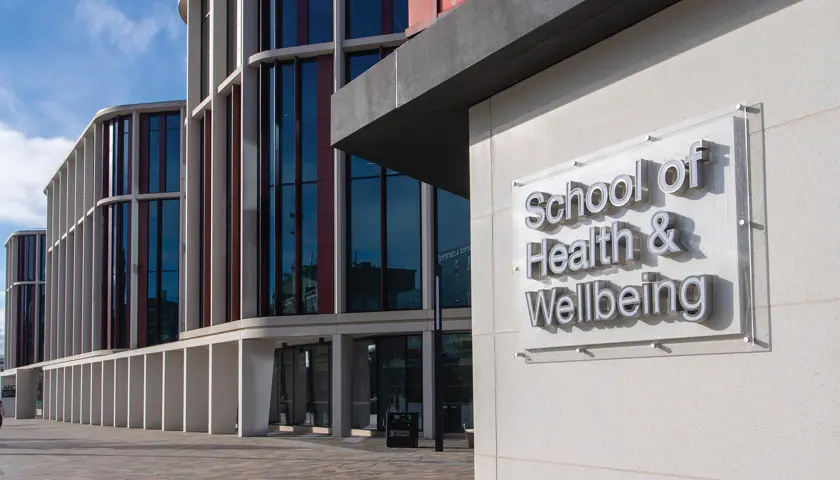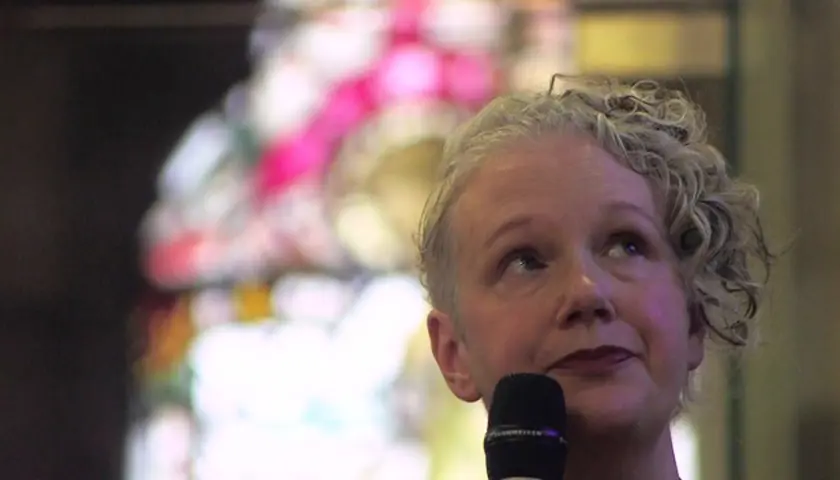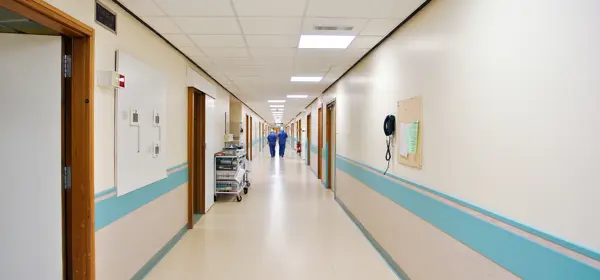
A voice for the dispossessed
Some of Andrea Williamson’s colleagues at medical school joked that she ought to become a social worker rather than a doctor. For the renowned GP, it is the social determinants of health that drive her work
The words ‘health is a human right’ greet visitors to Glasgow University’s school of health and wellbeing on a buzzing Byres Road.
They are accompanied by a quote from Professor Sir Michael Marmot which reads: ‘Inequalities are a matter of life and death, of health and sickness, of wellbeing and misery.’ These are fitting mantras for Professor Andrea Williamson’s workplace. Here, the deputy lead for the GP teaching team (pictured above) established and runs an intercalated course on global health primary care. She also teaches and trains about the social determinants of health, inclusion health practice and trauma-informed care – as well as leading major research projects on ‘missingness’ in healthcare and other projects.
‘I grew up wanting to find out about the world – I had that curiosity and a detective-work side to my character. And I’ve always had a strong sense of social justice. Those two things coalesce in medicine for me.’
Professor Williamson was raised in Ayrshire and was the first in her family to go to university. She studied in Glasgow, where the course was heavily biomedical and many of the students were more privileged. Some joked that she should be a social worker rather than a doctor.
Social justice
She tells The Doctor she wanted to quit on occasions but found sustenance in rare role models whose work was influenced by a sense of social justice. That was the ‘kind of doctor I wanted to be’, she says. Professor Williamson worked in infectious diseases and psychiatry after leaving university but neither was the right fit.
Following that, a year working in public health in a rural hospital in KwaZulu Natal, South Africa, brought involvement in projects such as setting up processes for the hospital blood transfusion service. Eventually, Professor Williamson realised she was a generalist at heart. She wanted to do work directly affecting communities. A range of roles including in a sexual health service where she set up a specific service for young people, academic posts and working with the homeless population followed.
In her early career Professor Williamson was working on projects about patients getting repeatedly struck off GP lists. The Doctor asks if it is frustrating that similar serious issues continue – does it ever feel like the battle is endless?
The biggest thing is doing your job well, treating every patient you see with dignity and respect and trying to make a difference to people who get ignored or lost in the system
Professor Williamson
‘That’s true up to a point,’ she says. ‘But things do change. As a medical student I used to help with a third-sector organisation doing a soup run. Back then the system didn’t meet the needs of the people there whatsoever. The only route they had for help was A&E. Now most places in the UK have a bespoke homeless healthcare service so while there’s still a lot to do things have changed.’
Yet progress isn’t always linear. Last year, local health leaders closed the esteemed Hunter Street practice, Glasgow’s hub for homeless healthcare, where Professor Williamson had worked since 2008.
Many felt it was an ‘unfathomable’ decision.
Professor Williamson, who literally helped write The National Institute for Health and Care Excellence guidelines for homeless healthcare, which underpinned services like Hunter Street, has experienced a sense of grief since.
‘It’s been upsetting – and angering,’ she says. ‘I meet patients on a weekly basis who are feeling the impact… It was also incredibly disempowering to be unable to stop it happening.’ Many of Professor Williamson’s career experiences have been empowering, though. Perhaps as much as any, a founding member of the Deep End group of GPs, a formidable coming together of doctors who work in the practices serving the 100 most deprived communities across Scotland.
Having been the impetus for community link workers being set up recently, doctors involved successfully campaigned for the continuation of the link worker service, which offers support on issues such as debt, housing, domestic violence and loneliness in GP surgeries.
‘It has enabled people with a passion to be empowered, we all bring our strengths and we support each other. There have been times I would have felt isolated without that support. But we know we aren’t on our own. And we persevere – while politicians, the civil service, and health managers change, we remain with our evidence, our experience and our knowledge.’
Professor Williamson’s achievements are many, including being involved in a plethora of national advisory groups and commissions. But it isn’t those accolades she is most proud of.
‘The biggest thing is the everyday stuff – doing your job well, treating every patient you see with dignity and respect and trying to make a difference to people who get ignored or lost in the system. Those are the things that renew me.’
In recent years Professor Williamson has been leading major research projects on missingness in healthcare, which can be defined as the repeated tendency of a patient to not take up care offers, which can negatively affect their life chances. The first part of the work, a study of monumental data sets, resulted in an award-winning paper. Its novel findings were that patients with more long-term conditions have increased risk of missing multiple appointments and were at much greater risk of death.
Perhaps most strikingly, the study revealed that patients with long-term mental health conditions who missed two or more appointments per year had an eight-times higher risk of mortality than those who attended with similar health condition diagnoses.
The work is continuing with a project looking at interventions to affect missingness running through to next year. Professor Williamson says: ‘Studying missingness in healthcare helps us understand that for some patients missed appointments have been an enduring issue. Changes to the healthcare system can change this for patients – and importantly be a way to tackle some of the pervasive health inequalities in healthcare.’
Working in inclusion health can be relentless and demanding – the difficulties and need in communities can seem overwhelming. But Professor Williamson is a ‘glass half-full kind of person’ and finds optimism in her students if ever pursuits away from work like yoga, dancing and time in the garden or with friends, fail.
While politicians, the civil service, and health managers change, we remain with our evidence
Professor Williamson
‘Just this morning I was with my students and there was a person represented who was in a public space injecting heroin. A student, when explaining what the drivers were behind her being there, said “adverse childhood experiences”. I said you have no idea how happy I am to hear you make that link. These are undergraduate students with that knowledge now. I see huge energy in them and we have substantial numbers of people with those values.’
Leaving the school of health and wellbeing after time with Professor Williamson it is hard not to share some of that hope. As we exit, that maxim – ‘health is a human right’ – is visible for every talented student who walks past it. There may be many challenges ahead but there will be another generation to rise to those, just like Professor Williamson and her peers have.




